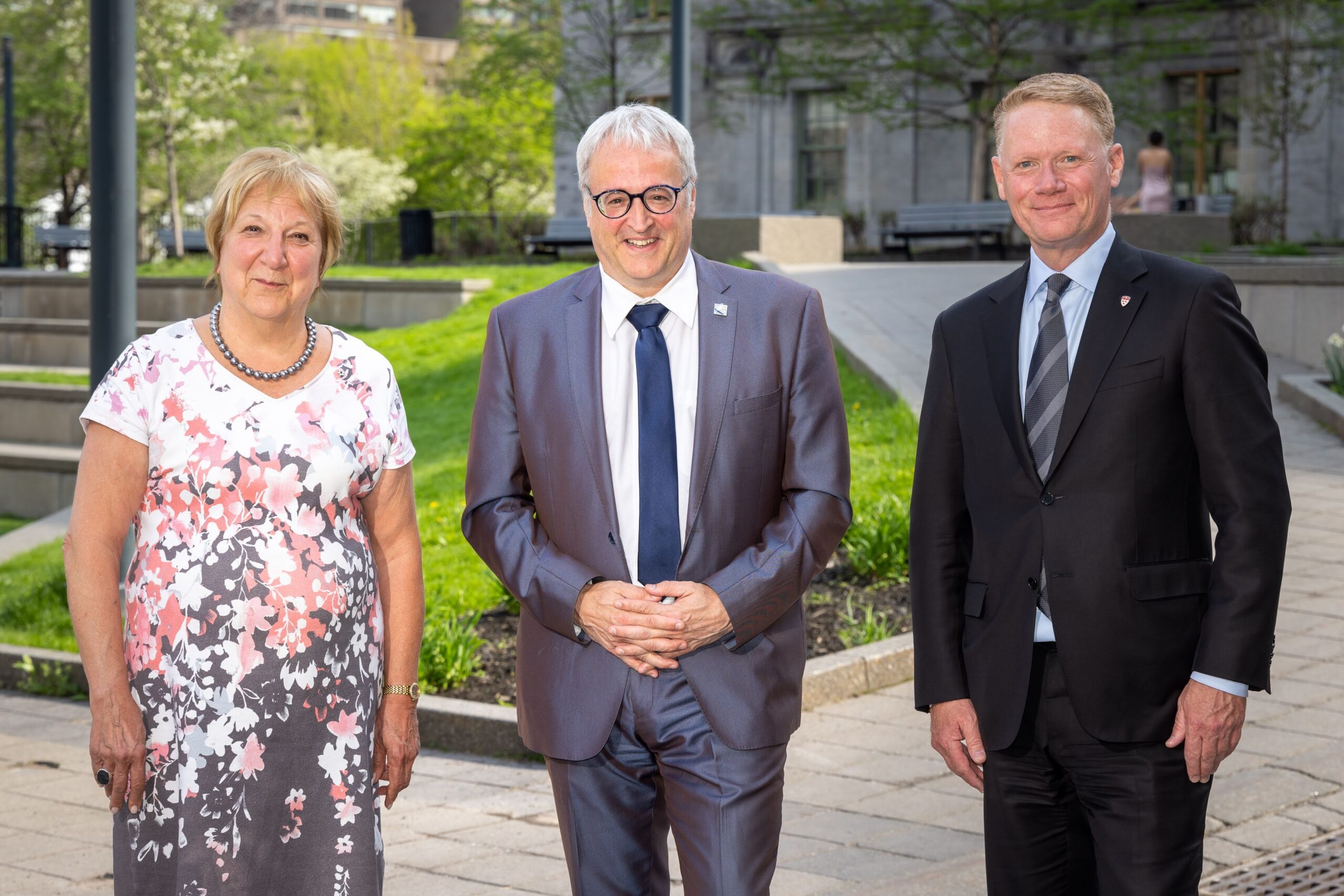
On Thursday, May 12, Pierre Dufour, Quebec’s Minister of Forests, Wildlife and Parks visited McGill University to meet with two of Quebec’s leading biodiversity researchers, McGill’s Professor Andrew Gonzalez, Liber Ero Chair in Conservation Biology and the Founding Director of the Quebec Centre for Biodiversity Science (QCBS); and Katrine Turgeon, Professor in the department of Natural Sciences at l’Université du Québec en Outaouais (UQO) and co-holder of the Chaire de recherche sur les enjeux sociaux de la conservation (CESCO). Joined by Martha Crago, Vice-Principal, Research and Innovation, and Louis Arseneault, Vice-Principal, Communications and External Relations, Gonzalez and Turgeon spoke with Minister Dufour about the challenges facing Quebec’s rich but endangered biodiversity and ecosystems.
“The goal is to transform the way society values, uses and protects biodiversity so that we can ‘bend the biodiversity curve’ and restore what we are losing,” said Gonzalez of ongoing research efforts in Quebec. “We need a radical transformation if we are to stop biodiversity change and climate change.”
Connectivity conservation
Gonzalez presented findings from the Convention on Biological Diversity (CBD) and from the FRQNT-funded QCBS, which has worked with the MFFP and MELCC to build Biodiversité Québec a platform to monitor the status of Quebec’s biodiversity.
The platform currently hosts more than 25 million observations of nearly 3000 species, a vital resource that will allow monitoring to support management. Gonzalez emphasized the need for new legislation for ecological connectivity – linking habitats and protected areas at risk of development to each other in ways that facilitate species movement. He pointed to Resolution 40-3 on ecological connectivity, adaptation to climate change, and biodiversity conservation adopted in 2016 at 40th Conference of New England Governors and Eastern Canadian Premiers as an example of how science can support policy and action for connectivity conservation.
Turgeon emphasized the importance of protections for species on public lands but cautioned that most endangered species’ habitats are on private lands, complexifying preservation efforts. She stressed the importance of providing a coherent legislative framework to protect wildlife habitats for endangered species that considers the constraints of land use planning and the apprehensions of private owners. She also pointed to the key role that municipalities could play in promoting conservation if they had more resources.
Biodiversity protection
Gonzalez presented to the Minister the key recommendations of the “Plan Sud pour le Québec,” a white paper released by the QCBS and partners in 2021 that proposes a transformative strategic plan for Quebec’s biodiversity in the south of the province, including several recommendations to accelerate biodiversity protection south of the 49th parallel.
The White Paper was a collaborative effort across different stakeholders including Regroupement national des conseils régionaux de l’environnement du Québec, le Centre de la science de la biodiversité du Québec, la Chaire de recherche du Canada en économie écologique de l’Université du Québec en Outaouais, la Chaire Liber Ero en biologie de conservation de l’Université McGill et le Réseau de milieux naturels protégés, proposent Un Plan Sud pour le Québec.
Of the meeting between the researchers and Minister Dufour, Vice-Principal Crago emphasized that, “the consequences of climate change and biodiversity loss for the environment, the economy, and human well-being are certainly concerns we share. By working together, researchers and government can help address the challenges that many communities are already facing.”
